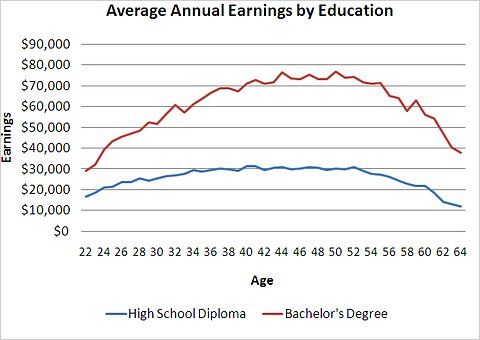One degree isn't the same as another. An BA or even an MA is probably less valuable than a BS or an MS...
The only difference between a BA and BS at the university I attended for my undergraduate work was 2 years of a foreign language... which, incidentally, was required for the BS, not the BA.
Bill Gates is wealthy, he never finished college... My grandpa ran the largest lemon packing house in the world, and never finished the eighth grade...
Personal drive has more, IMO, to do with where you get in life than any other factor.[/QUOTE]
Personal drive is, indeed, important - although as I said earlier, the expectations for education have increased massively over the last 50 years; when your grandfather was a child, few people went to school past 8th grade. My grandfather - who stopped at the end of 8th grade - was a professional draftsman, which would require considerably more today than the on-the-job training Grandpa received. That same personal drive is behind all of the entrepreneurs in the news today.
The biggest difference I see is the proliferation of assistance programs - when my grandparents (all born between 1902 and 1912) were children, and young adults (during the Great Depression) you either found a way to make money or you starved. Welfare began during the Great Depression - and people did whatever they could to stay off it. I teach children who are third- and fourth-generation Welfare recipients, who are taught from the cradle that the government
owes them a living. As a teacher, I do all I can to teach these kids that effort will pay off - so they can go home and sit on the couch with Mom and Grandma, listening to them complain about how food stamps just don't go as far as they used to. Few of them have the personal drive necessary to succeed in school - never mind beyond school. The problems with education today are societal, and related strongly to the 87% of the time that kids
aren't in school - so let's quit telling teachers to fix it all by themselves and pull together as a society to fix this mess we, as a society, have created.

